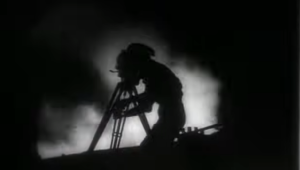Considering this generation is content listening to music via lo-fi mp3's on cell phones through cheap ear buds, cassettes might actually be a step up.
Cassettes, Really?

Pencils, of course, are used to take up the slack in the tape inside a cassette. You know that because, as a former cassette user, you performed that small chore countless times. Alternatively, you jammed your little finger into one of the reel sockets. Among other cassette chores: endlessly pushing the fast-forward and rewind buttons until you found the start of a song; struggling to hear the music over the roar of the tape hiss; getting a queasy feeling from the undulating pitch variations; screaming at the cassette deck that just ate your Awesome Party Mix tape.
In other words, because you lived through the cassette era, you will agree with me that cassettes are terrible. And yet, cassettes are making a comeback. Perhaps comeback is too strong a word. Renewed interest, maybe?
Cassette sales peaked in the ’80s, and the format was subsequently left for dead. Recently, however, some indie and DIY bands have begun to embrace cassettes, sometimes releasing their work exclusively on cassette. They are dirt-cheap to make and harder to pirate than files. National Audio Company, the largest cassette manufacturer, made 10 million cassettes in 2014, and sales are up 20 percent this year. To promote awareness, Cassette Store Day is observed annually.
I can vaguely picture it. You’re in college, and you are compelled to differentiate yourself from the sheeple. Your mom wears a Billy Idol T-shirt and jeans with ripped knees, and she likes to smoke pot while listening to LPs. Clearly, you’re not going to be doing any of those things. You need something different, something undiscovered, a niche that excludes coolness, hipness, or logic. And you find it: cassettes.
Remember when people used the phrase “That’s bad!” to enthuse about something that was really good? The problem with cassettes is that they really are bad.
Still, I don’t get it. Remember when people used the phrase “That’s bad!” to enthuse about something that was really good? The problem with cassettes is that they really are bad. Really, really bad. Cassettes don’t sound very good, and they aren’t convenient. If anything, cassettes present a barrier to their use. For starters, you have to find a cassette player. Surprisingly, Sony still sells a cassette boombox for 50 bucks, but it would be better to find a cassette deck at a flea market for 5 bucks. Then you need to learn to deal with the tribulations of using cassettes (see second paragraph, above).And perhaps that’s the appeal of cassettes. In a world where your phone has 100,000 of your favorite songs and can stream any song ever written, music is too easy. Music takes zero effort, and that devalues it. With cassettes, if you want to listen to a song, you have to put in some effort. Maybe that means you’ll appreciate the song that much more. Maybe the point is that cassettes are a PITA, and some bands demand that their listeners ante up for the privilege of listening.
Cassettes reject the mainstream resurgence of LPs, an elegant format that has been hijacked by hipsters and too-cool retailers. Cassettes are a music anti-technology. Cassettes are the perfect niche format for niche music. Cassettes are humble, as humble as a homemade mix tape with a hand-written label, given to a cute girl.
But still—cassettes? Really? As an audio engineer, I am genuinely offended. Cassettes have absolutely no redeeming technical qualities. I don’t understand why we are seeing a comeback. Um, renewed interest.
- Log in or register to post comments


ugh. I suppose in this case, nostalgia(or unchecked hipsterism; cue curly mustaches and lumberjack beards) trumps both convenience AND quality.

Hey Ken, since you're an audio engineer and all maybe you could have given some actual, technical reasons why cassettes are worse than anything humans have conceived, including the wax cylinder. Instead, your commentary sounds much like the vapid, uneducated hipsters I had the unfortunate experience of overhearing at a music store one day. So much cliche. I googled your name because I don't know your work. You have a pretty prolific technical writing career. Too bad you took the low road with this one. Maybe you lost a bet at the Sound and Vision christmas party...
While I would agree that cassette technology has some big technical limitations, the proof is in the listening. I have a pretty nice Sony ES deck from the 90s which sounds fantastic, especially with well engineered albums with XDR. I'm no fanboy or ironic luddite, just an open-minded audio nerd who likes what he hears.

i am curious about the technical differences among LP, CD, cassette. Not a grand lecture but something more in line with the "-phile" part of hte title. when i started buying CDs, i noticed that cassettes sounded louder, but i was grateful for the abscence of hiss. even before learnign a bit mroe about the specs of CD (16/44.1, etc.), i wondered why the "antiquated" medium sounded louder. perhaps it was the diff in gain among cassette player, cd player.

Consumer grade tapes, and it doesn't matter what kind of tape format was used, were generally mastered loud to overcome the low signal-to-noise ratio at the high frequencies caused by tape hiss. Dolby noise reduction later helped to lower the signal-to-noise ratio, but I don't think the mastering changed much because of it because people expected tapes to be louder than records.
The early CDs sounded softer because record companies were eager to impress customers with the extended dynamic range. By the mid-90's, CD players used in noisy environments had become more widespread (portables, cars) and the extended dynamic range became a problem, so record companies started compressing CDs and the loudness war was reborn.
Records have been spared the loudness war because a stylus can't track something that is as loud as CDs have been mastered. I think that is the main reason vinyl has become popular again. People like dynamic range.

Actually cassettes can sound pretty good. Just like a turntable, the playback device has to be set up properly. I have a Nakamichi Dragon deck that has Dolby S noise reduction. Using quality metal based cassettes and a clean and demagnetized tape head it sounds damn good. Of course kids using cassettes today probably use old Mallory FlipTape cassettes, a tape head whose gap is hopelessly encrusted with oxide and it sounds like hell. Like anything, if you have the proper tools, you can build anything. If you have garbage, you will hear garbage.

Great news ! I now have an excuse to track down that Nakamichi Dragon I dreamt of owning as a kid but of course coud never hope to afford. I still have my AIWA portable player with the anti-roll mechanism and dbx expansion circuit in pristine condition.


Cassettes are really, really bad? Actually, cassettes (with Dolby S) used to record from vinyl, or CDs, are a good facsimile of the original. What is really, really bad? 1) Virtually every MP3 playback l've heard, including the so-called "lossless" playbacks from I-Tunes. 2) MANY digital remasterings of original analog - some of them really, really offend me! 3) CDs replication of high frequencies, such as ride cymbals and bells.

When I was in college I had a really nice Akai cassette deck (metal tape Dolby B & C, and all that stuff) in my system and used it the way people use iTunes today -- to record stuff from friends records. I had a very nice system (for anyone, not just a kid in a dorm room) and it was possible to make nice dubs of LP's onto cassettes, and they would sound good when played back on a good machine.
But as they age, the slip sheets on the inside of the shell would dry out or, if you weren't careful and let the pinch wheel get dirty, they had a tendency to jam up. And the commercially produced tapes just sucked in quality. But if you used premium TDK or Maxell tapes they would last a while and sound pretty decent. But a lossless (or even lossy) rip from a CD is so much better.

https://www.youtube.com/watch?v=eGz07wgd0BQ
And to think the minds at Sony decided to resurrect this idea some 40 years later.

Packers and Movers in Bellandur @ http://www.bangalorelocal.in/packers-movers-bellandur-bangalore.html
Packers and Movers in Jayanagar @ http://www.bangalorelocal.in/packers-movers-jayanagar-bangalore.html






























































